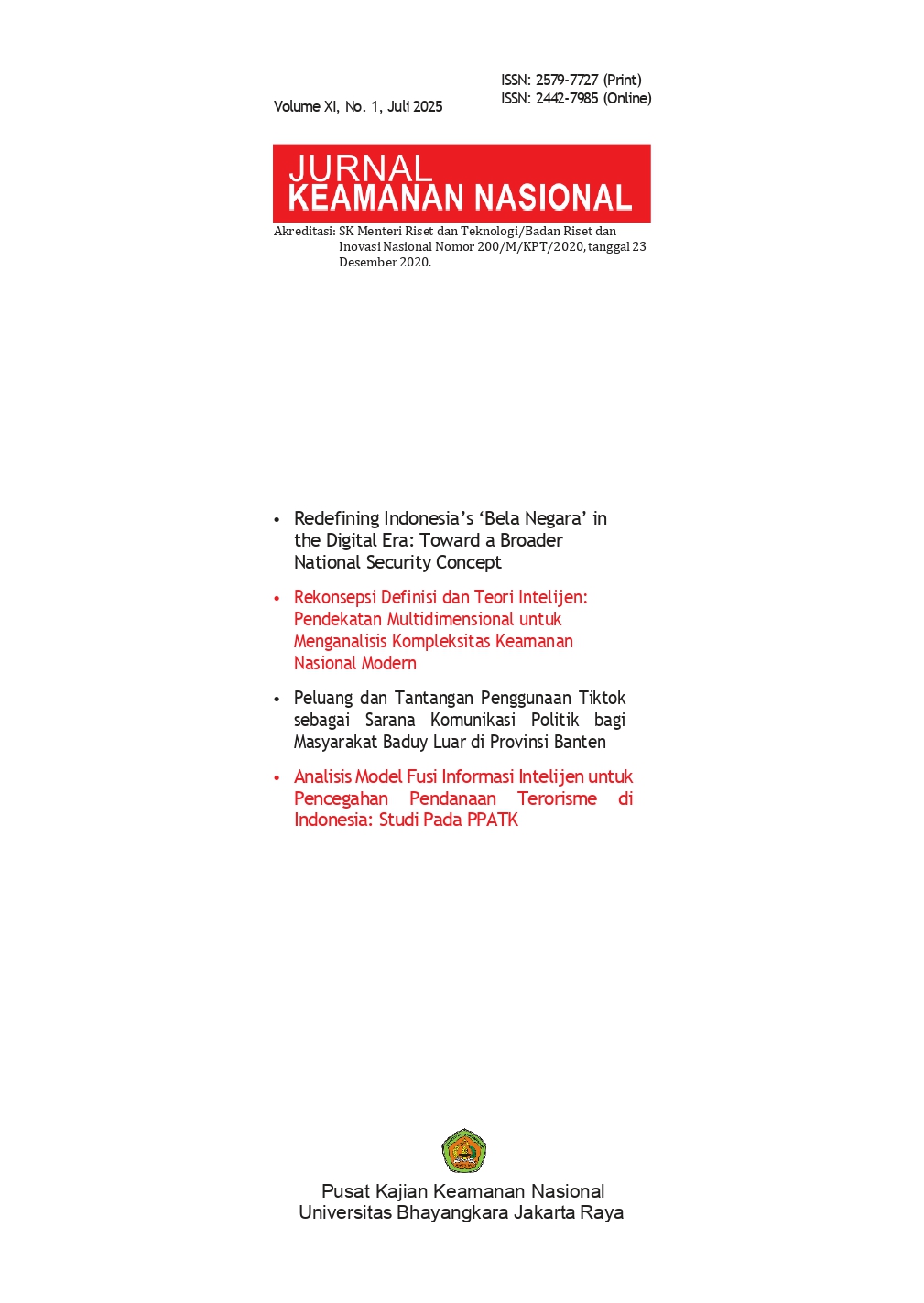Peluang dan Tantangan Penggunaan Tiktok sebagai Sarana Komunikasi bagi Masyarakat Baduy Luar di Provinsi Banten
DOI:
https://doi.org/10.31599/4tqqj583Keywords:
TikTok, Indigenous People, Political Communication, Baduy CommunityAbstract
The increased political participation of the Outer Baduy community in the 2019 General Election shows the influence of access to digital information, including social media. TikTok social media has become an interactive political communication platform, allowing the Outer Baduy community to access and disseminate political messages. However, the use of TikTok social media in the political communication of the Outer Baduy community presents both opportunities and challenges in the process of socialization and delivery of political information. This research aims to explore the use of TikTok social media as an alternative political communication for the Outer Baduy community. The approach used is a descriptive qualitative approach with a literature study. The results show that TikTok offers significant opportunities in political communication, for political actors and indigenous people due to its ability to reach a wide audience and provide more personalized interactions. However, there are challenges such as optimizing the use of TikTok by political actors and implementing digital literacy that is sensitive to local culture, especially in communities such as Baduy. Thoughtful and context-based use of TikTok can strengthen political participation and social inclusivity, it needs to be accompanied by efforts to address disinformation and maintain existing cultural values.
Downloads

Published
Issue
Section
License
Copyright (c) 2025 Adi Akhyardi Juliansyah, M. Yusuf Samad, Diah Ayu Permatasari, Pratama Dahlian Persadha (Author)

This work is licensed under a Creative Commons Attribution 4.0 International License.
Please read and understand the copyright terms for submissions to this journal.
Copyright Notice
The Jurnal Keamanan Nasional is under the Creative Commons Attribution 4.0 International (CC-BY 4.0) License, according to which:
1) Authors retain copyright and grant the journal the right to first publication, with the work simultaneously licensed under the Creative Commons Attribution (CC-BY 4.0) that allows the sharing of articles published with the acknowledgement of authorship and the initial publication in this journal.
2) The authors are authorized to make additional contracts separately for distribution of the version of the work published in this journal (for example, publication in an institutional repository or as a chapter of the book), as long as there is recognition of authorship and initial publication in this journal.
3) Authors are authorized and encouraged to publish and distribute their work online (for example, in institutional repositories or on their personal pages) at any time before or during the editorial process, as it increases the impact and reference of the published work.












